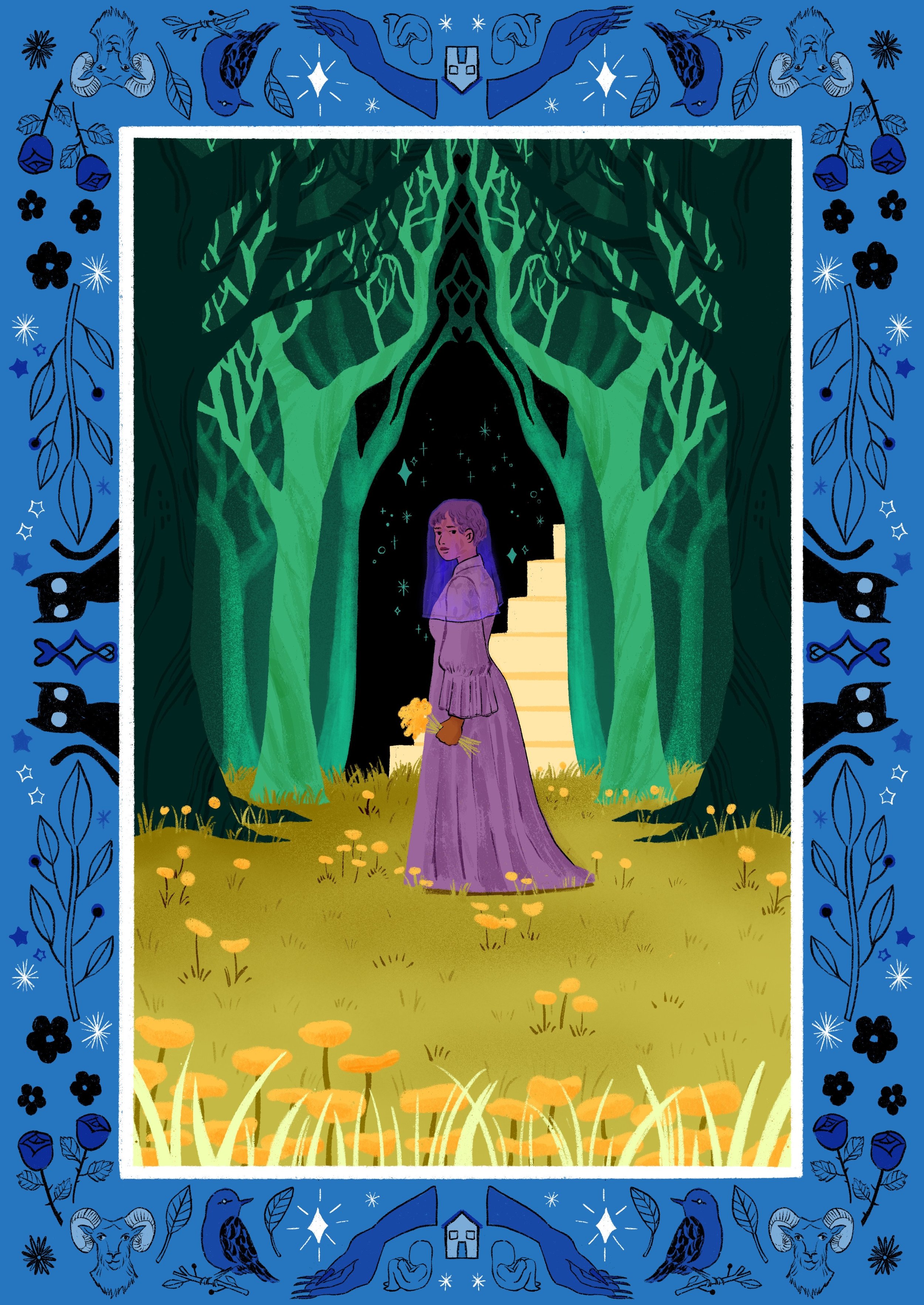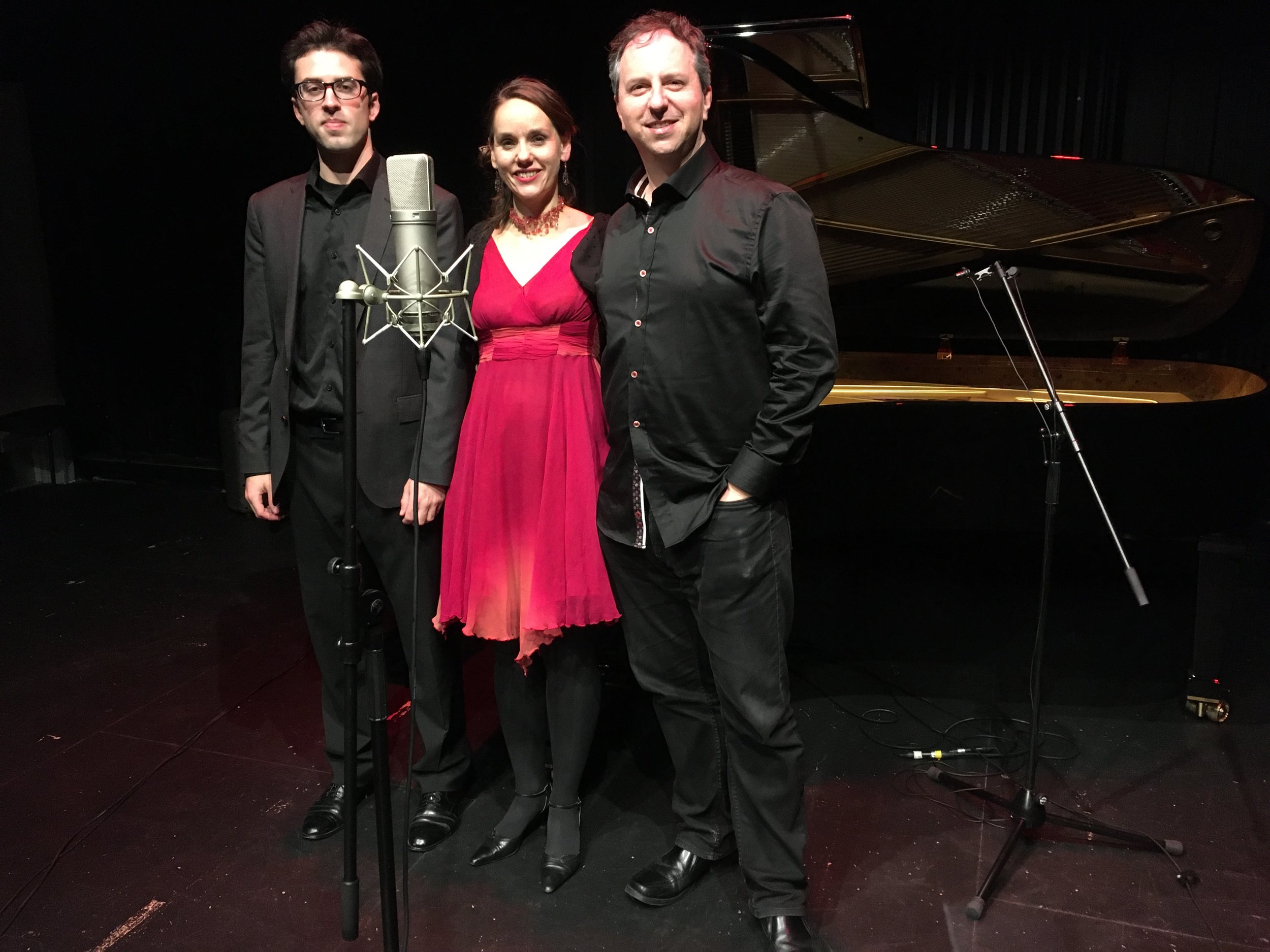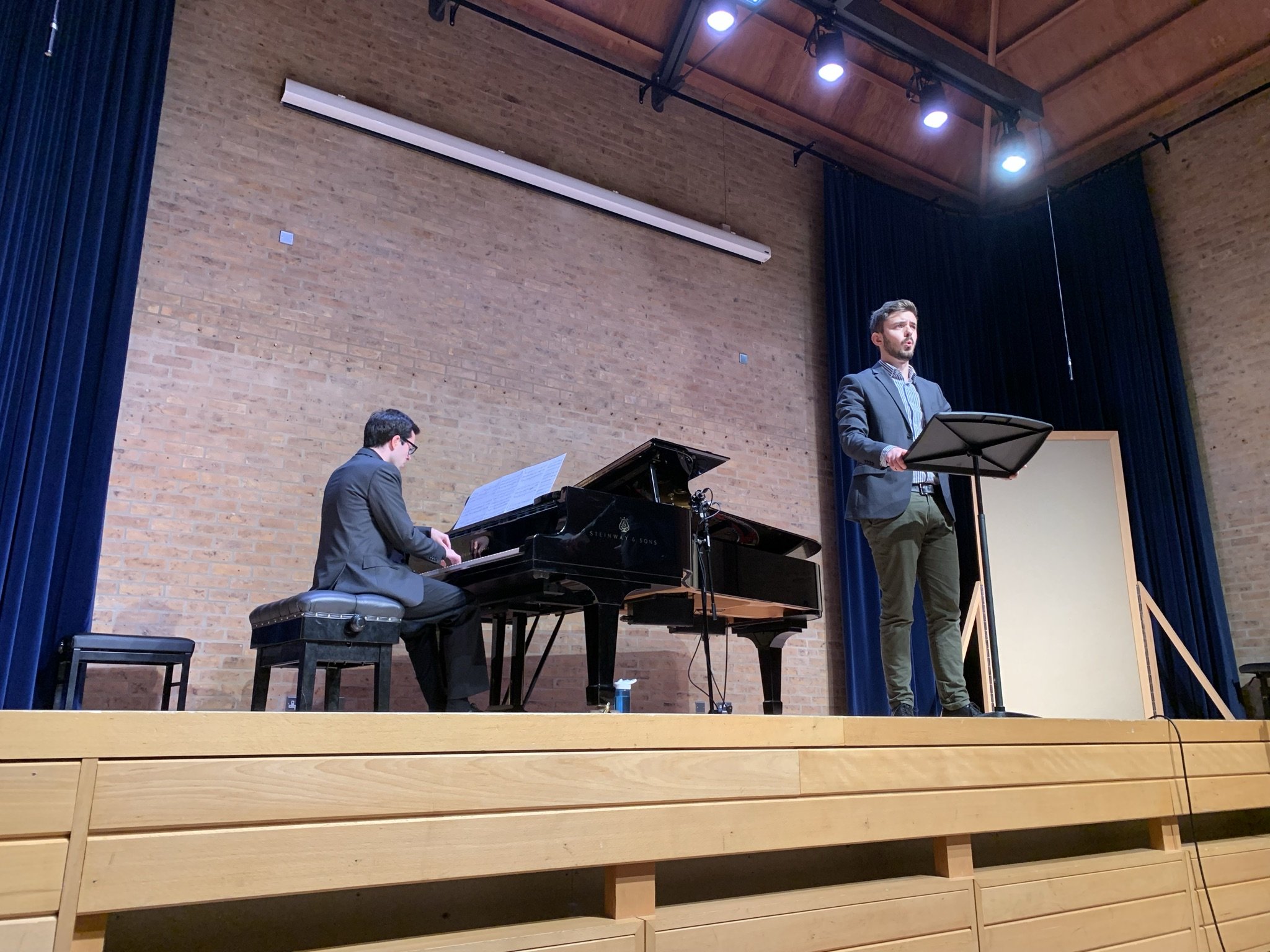Poems by Gregory Leadbetter:
A poem is a thrown voice: words spoken, written, that reappear at some remove from the poet—even if it is the poet that repeats the poem. Once a poem has assumed its form and achieved the necessary integrity (however which way) the poem becomes its own voice, one capable of surprising and even startling the poet—even though it is and remains, manifestly, the poet’s own. A doubling, of sorts, has taken place—and this doubling, together with the eerie relation it embodies not just between the poet and the poem, but more generally between human being and the utterance of language, was very much on my mind as I put together
The Fetch (Nine Arches Press, 2016). (In fact it’s always on my mind.) The ‘fetch’ of the book’s name (and the title poem of the collection) is a double, apparition, or wraith of a living person. The more everyday sense of the word—a retrieval, a travelling away to and returning with—is also tangled up in there: but who or what is being ‘fetched’?
All this applies before the poem is set to music—in which a further ‘doubling’ occurs. If things go well, the poem takes on yet another life, in another context. That verb ‘set’ might seem to imply a kind of pegging out of the poem onto a musical frame, as if the two artforms have been spliced, perhaps painfully, into strained or otherwise fraught relation. Ideally, of course, that is precisely not what should happen. Instead, listening begets listening, imagining begets imagining—so that the music in some sense grows out of the poem and its mingling with the composer’s musical intelligence: the poem plays a constitutive role in the genesis of the music that will carry it. And then another voice—the singer’s voice—throws that of the poet still further, taking it into and communicating it from their own body, in song. The poet listens: a strange double of their voice emerges, and returns with what it has fetched.
I feel lucky to have been that listening poet, struck with a correspondingly strange, pervasive pleasure, when Eric McElroy first played and sung to me his settings of five poems from
The Fetch on 23 June 2019. As he explains, we’d met for the first time only a year before, at the Robert Graves summer conference, where McElroy, on piano, and soprano April Fredrick, had brilliantly performed
A Dead Man’s Embers, McElroy’s setting of six Graves poems. He also heard me read from
The Fetch and, chatting over dinner, we discussed the possibility of a collaboration. Now, in an empty recital room in Oxford, I heard the result. It was, for me, extraordinary.
McElroy had ultimately chosen five poems to work with: ‘Misterioso’, ‘Stalking’, ‘Statuary I’, ‘Statuary II’ and ‘This’ (in that order). I had been intrigued even by the selection, which told a certain story of its own; but what would appear in the music? Hearing the song-cycle for the first time, an audience of one—and of course, more than usually invested in the experience—I could feel his insight into the poems, and the quality of attention he brought to them, in the dynamics of the music, and the harmonic language he’d spun from and around the poetry. Throughout the work, the weave of tone and structure in the music evokes a sense of two worlds—this world and an otherworld—mutually inhabiting each other: that doubling, that fetch (and fetching), again. I was delighted to hear the music bring out both patent and latent qualities in the poems. The setting of ‘This’, for example—particularly in its place as the final of the five pieces in the sequence—revealed something more of the hidden life of the poem: the lovers more haunted by each other, presence and absence coupling in the kiss of language. McElroy has created, from my book, a kind of book in music—a book unfolded from mine—which both corresponds with the life of the poems, and embodies a new life of its own. I heard my thrown voice afresh. I learnt a great deal, just by listening: not in an informational sense, but an experiential one—a form of knowing that lives on (and nourishes) the preverbal pulse of the nervous system. Poetry and music meet there, in their effects, when the right magic has been performed.
But what of the idea of setting poetry to music in the first place? Like many poets, I write poetry that pays particular attention, in composition, to aural and musical qualities inherent to the spoken language in which I am working. This is what ‘lyric’ poetry is, for me: not a poetry associated with particular subject matter or style, but a poetry that generates its own kind of ‘music’—or aural patterning, if you prefer—in and through its words. If, however, as Don Paterson once said (and I agree with him), such ‘Poetry is already set to music’—the music of its language—where does that leave the musical setting? For Paterson, it’s a pretty bad place: because ‘poetry is always highly conscious of the noise it makes’, he writes in
The Poem, ‘the musical setting of poems is almost invariably a redundant or destructive exercise, resulting in either the contradiction of the original poetic music, or its melodramatic duplication—an exercise akin, in Valéry’s perfect and perfectly damning formulation, to “looking at a painting through a stained glass window”’.
It will already be clear from what I have written that Paterson’s remarks do not hold true of my experience of McElroy’s work on
The Fetch, nor my perspective as the poet and fellow artist on this occasion. The music that McElroy composed for the poems responds sensitively not just to the dictionary sense of their words, but to the entire affective apparatus of the poetry: ‘the original poetic music’. In other words, his music responds—with exceptional sensitivity, I find—to the supra-verbal qualities of the poetry, which are inextricably connected (in the way I compose poetry, at least) to its semantic force. ‘Music’ begets music—and neither cancels the other out. Rather—if things go well—a new creature emerges, and the poetry and the song-cycle exist in a mutually amplifying relationship.
What too of language, when modulated from the ‘music’ of speech into the music of song? The words of the poem should not become merely non-verbal sounds: the freight of their possible meaning should be available to the listener. Again, the character of lyric poetry, in the sense I have described, supplies its own answer to the quandary—because there too the meanings constituted by the poem’s diction, grammar, and syntax work inextricably in concert with its supra-verbal auricular form. A non-naturalistic quality is already at work in the poem if it has been composed with an ear to its aural patterning—so it’s not so very far to travel from speech to song as it might, at first, appear.
Walter Pater, famously, wrote that ‘All art constantly aspires to the condition of music’—but in this he was advocating a very particular quality, which he regarded as essential to the idea of art: the fusion and indeed identity of form and content. The ‘condition of music’ does not, therefore, necessarily imply a withdrawal of grammatical sense, towards an absence of all that words bring into play. Reformulating his remark, we might even say that ‘All music aspires to the condition of language’—that is, a form of intelligibility, and embodies an impulse to communicative utterance, capable of rousing the preverbal energies, feelings, and intelligential powers of another being. Again, we are at the nexus at which poetry and music meet.
This brings me finally to the intersection of my ongoing interest as a poet in the uncanny and the transnatural, and McElroy’s work on
The Fetch as a musician: the capacity of the thrown voice, in poetry or music, to act, in its psychophysiological effects, as the quickening agent of an altered state: a fascination and an ecstasy that becomes a moment of metaphysical inception. In its activation of mystery—its synthesis of exactitude and indeterminacy, precision and diffusion—one aim of such art is to activate and nourish our powers of attention and apprehension, in the fullest sense of that word. This is a task in which both poetry and music participate and stimulate each other—call you to look and to listen to the presence in the air.
Gregory Leadbetter’s most recent books are Maskwork (Nine Arches Press, 2020) and Balanuve (with photographs by Phil Thomson) (Broken Sleep, 2021)







